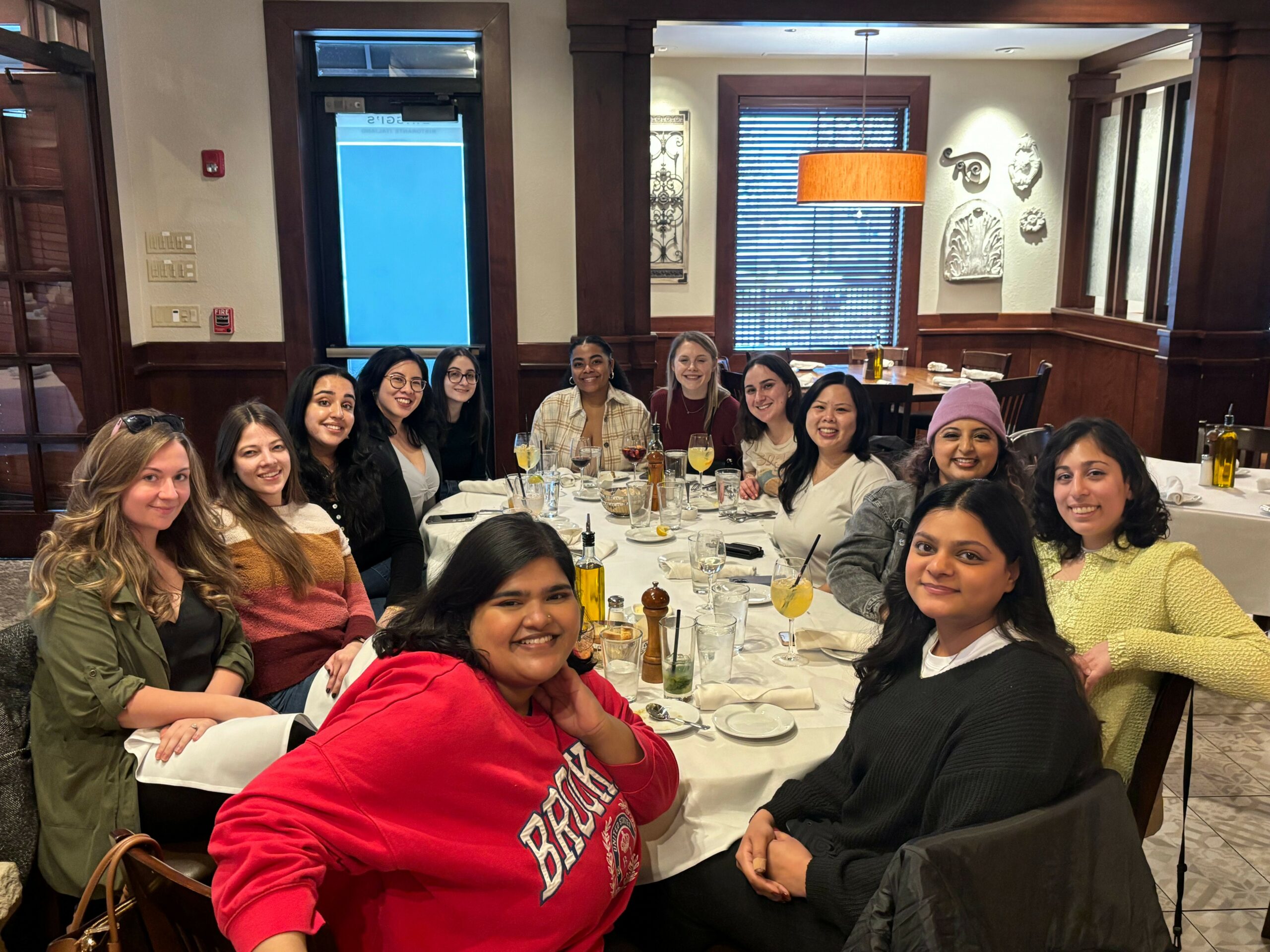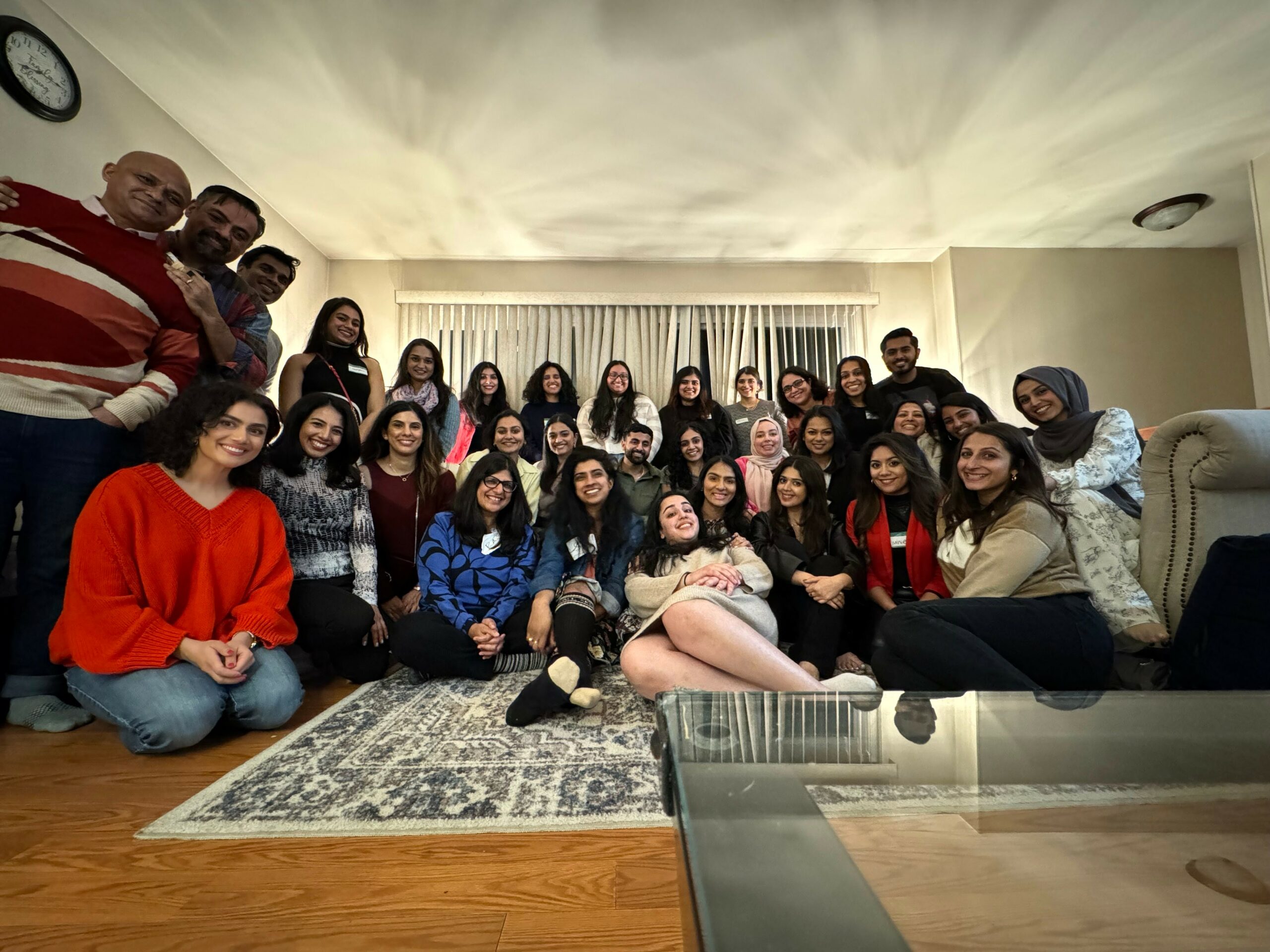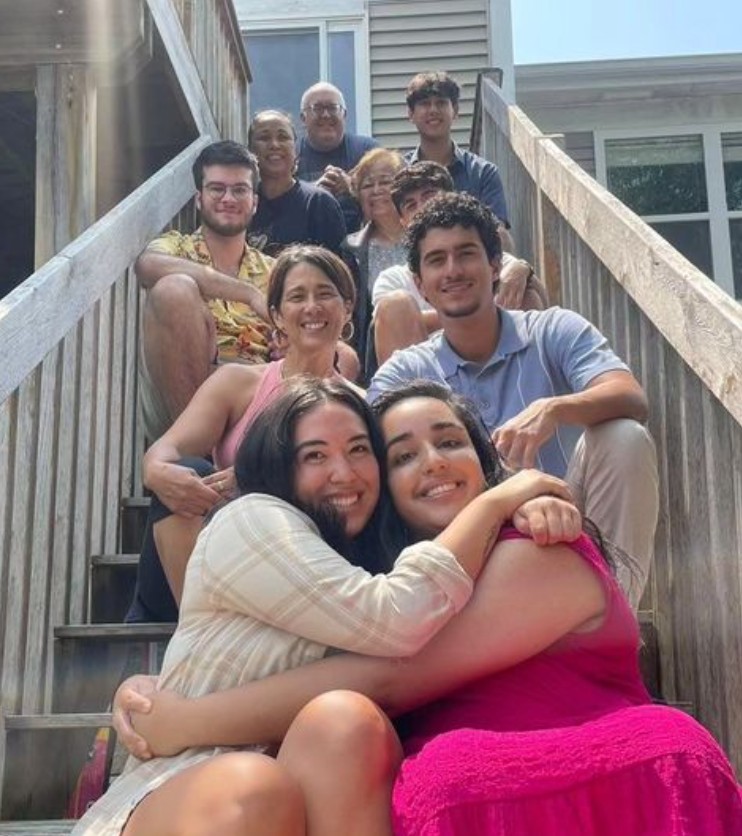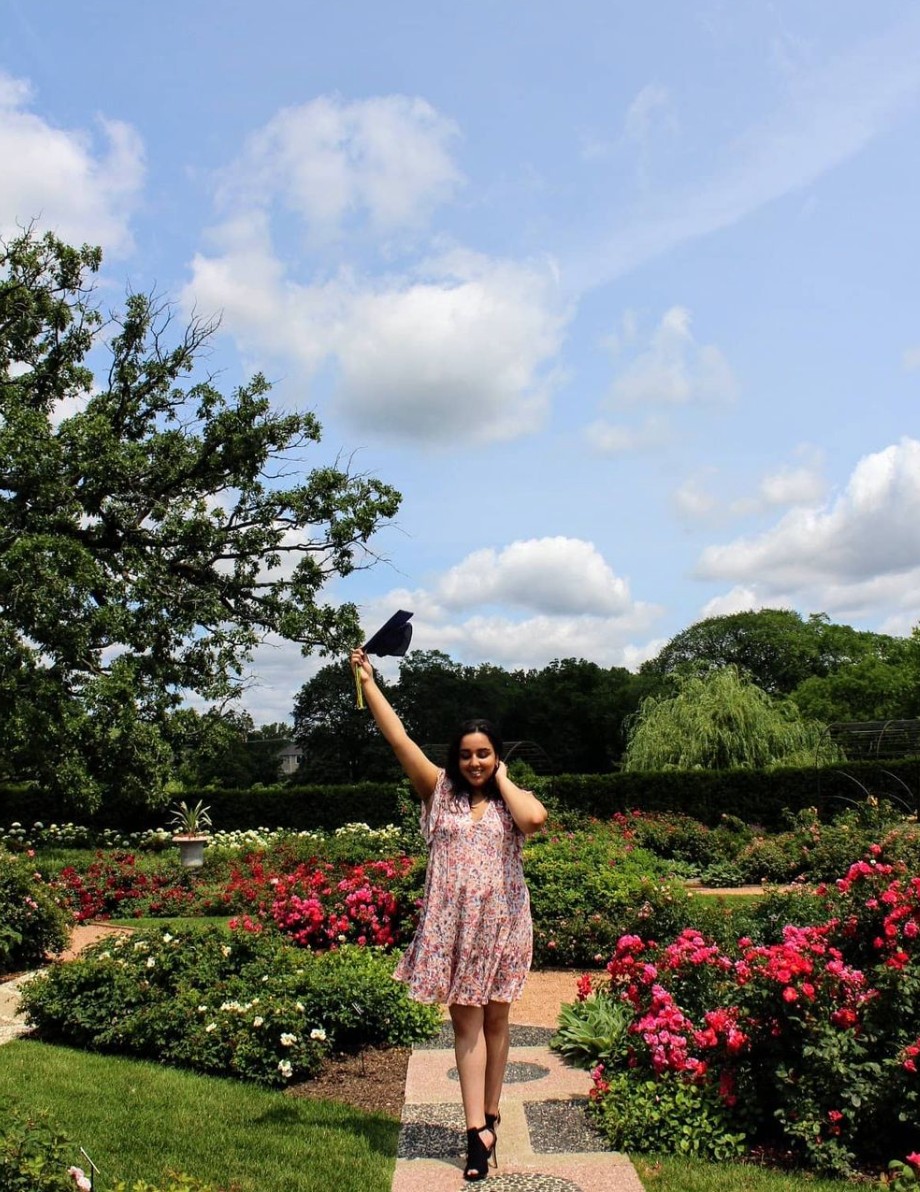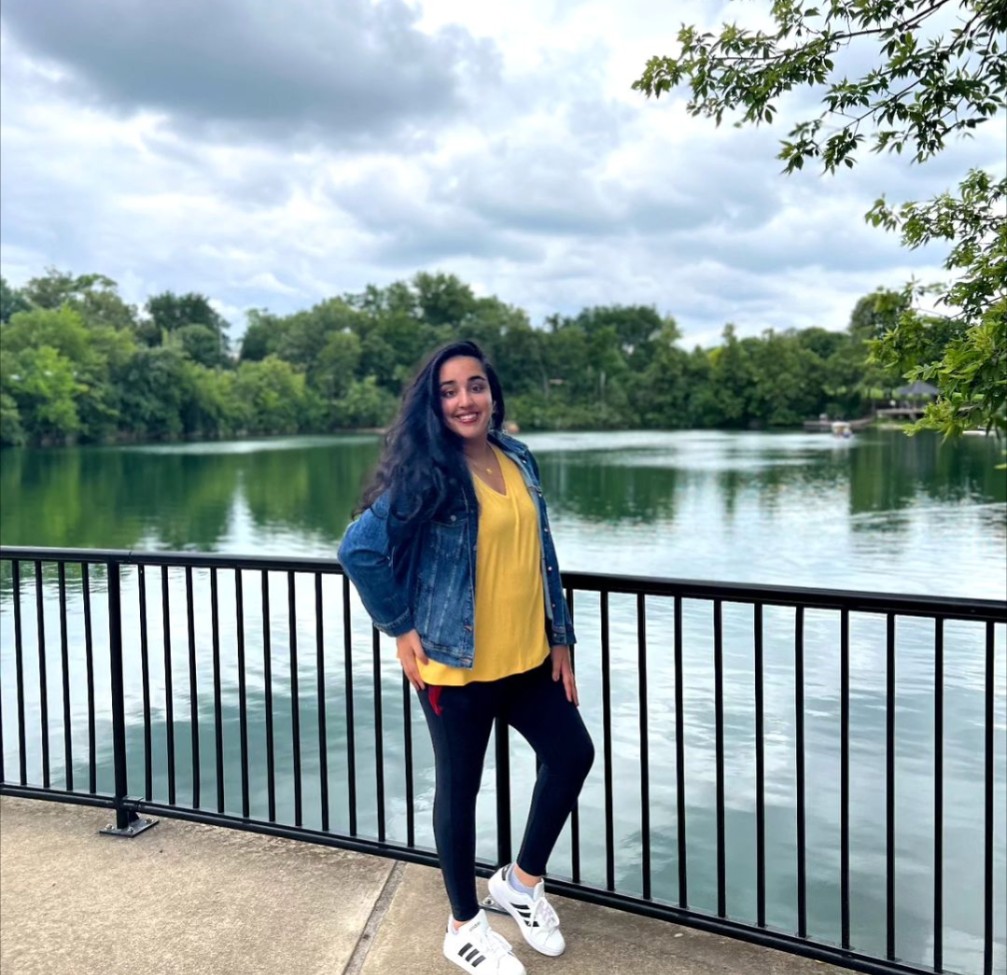We’re excited to introduce you to the always interesting and insightful Asha Rao. We hope you’ll enjoy our conversation with Asha below.
Hi Asha, thank you for being such a positive, uplifting person. We’ve noticed that so many of the successful folks we’ve had the good fortune of connecting with have high levels of optimism and so we’d love to hear about your optimism and where you think it comes from.
When someone asks me what the best thing about myself is, I am quick to say “My friends”. That phrase has become my go-to, because truly my close friends and those I consider my found family, are the reason that I am where I am today. Without their undying faith in my abilities and their commitment to reassuring me that me as a person is perfectly valid and much needed, I wouldn’t be in the spaces I am today.
I have found it funny that while my name means “Hope”, in Hindi, I have never had much of it myself. Growing up, it was clear that I was either going to be a failure or a misfit, or not amount to much of anything. Other common themes in my story from the past included a lack of control, not knowing what the future held, and having to survive to attain security. From a young age, I learned if I couldn’t fix my own problems, I could at least regain a sense of control by fixing the problems of others. I had learned by helping others and being present in the moments that brought others joy, that I too could feel joy and be apart of the solution.
My optimism is fueled by the resilience I have learned throughout my life in the good times and the bad. I refuse to accept that there is not a change that can be made to counter the future, even in the worst of times. While the work behind this change might take days, weeks, or even years, the moment that the positive change comes is worth the wait. I have seen this in my clinical careers as a pediatric occupational therapist where that very special moment comes and my client achieves what we have been working on for a very long time- I have been lucky that my optimism has been crafted by the organizations I have been lucky to work with like Young Invincibles, The Mental Health and Disability Alliance, and several of my mentors at the University of Illinois at Chicago who brought me into community organizing and capacity building work.
While you can have optimism or be optimistic, the most important thing for me has been surrounding myself with the people who have helped me sustain it. Ramya Chunduri of Saurya Media, or Trisha Sakhuja-Walia have never let me give up on my dreams or hope no matter how big they seem. While my optimism about life and the people in it has formed over a myriad of experiences, it is truly the people I have in my life who continue to uplift my hope so that my optimisms can continue to stay alive.
Appreciate the insights and wisdom. Before we dig deeper and ask you about the skills that matter and more, maybe you can tell our readers about yourself?
When I was 18 or 19, I left the suburbs of Round Lake where I had grown up my entire life to move to Chicago. I began my bachelors at the University of Illinois at Chicago, and finished my program in three years so I would have an easier time financing my graduate degrees. I was studying to become a pediatric occupational therapist because it was the healthcare career where I could deliver clinical services while also maintaining a work/life balance and pursuing other roles that could impact change related to disability work like research, academia and community building. Throughout 2019-2021, I worked in different hospital systems as a volunteer or aide, like Shirley Ryan Ability Lab and UIH. I was also able to assist different research grants and projects related to disability and refugees, Asian Think Tanks, and disability & cultural belief systems.
I had received acceptances to Midwestern, Washington University, and University of Illinois at Chicago’s occuaptional therapy graduate programs, but ultimately stayed at UIC, because its commitment to uplifting communities and connecting groups resonated with my personal mission. During the course of my masters, I received my clinical education while working as a research assistant and teaching assistant in the Disability and Human Development department. My favorite story to tell, is when the deadline was approaching to apply to the post-professional doctorate program in March 2020, I had asked the universe for a sign.
I was always unsure if I was smart enough to pursue a graduate program, let alone receive a doctorate degree. I had submitted the application, and the day before I was supposed to find out the decision, I asked the universe to show me if I was supposed to do the program or not: the next morning, I received an offer letter to be a teaching assistant that would fund my masters and doctoral degrees. This made it possible to complete my graduate programs and took away the stress that I had been carrying for years around how I would finance my education and the burden that had come upon my family due to my education.
While I may have had to keep many balls in the air the last six years across two degree programs, constantly work two-three jobs to be able to receive my education and access the spaces that I have been lucky to be in, it has been worth it. The biggest win of my journey so far has been able to help others access the same spaces that I had to struggle and fight for along the way so far. A phrase I learned during my doctoral program, was “Pass the Candy”. The phrase was coined by parts of the disability community in Washington D.C. which signified thinking about how opportunities that came the groups way could be passed to an individual that would either benefit from it or might not have received it other wise. This would ensure all individuals experienced equity and inclusion across opportunities and experienced and everyone could participate in learning and growing.
This experience and many others that are synonymous to it, have helped me to be this version of myself that I feel most centered in. I have more capacity to connect others to opportunities and experiences, while continuing to be able to enter spaces where I can bring conversations around disabilities to the people and the environment. My biggest goal for the near future is to continue being apart of conversations and capacity building so that dialogues around disability especially within the South Asian community can increase and barriers or stigmas related to disability can be reduced. I frequently create content on my social media account, @themasalachaiOT on Instagram to create education and awareness around neurodivergent affirming practices that create a strengths-based, culturally relevant treatment approach which is also trauma-informed to reduce stigmas towards disability across different communities.
One of the ways I will continue to do this work which I am very excited to announce, is with the beginning of my non-profit organization, The Chicago Kasam. “Kasam” in Hindi means a solemn oath, a promise, or a high quality trust behind an agreement. The Chicago Kasam is a non-profit organization that aims to promote healing between communities within the South Asian diaspora by marrying the paths of creatives with the visions of professionals so we can impact long-lasting positive change. I hope that by inspiring South Asians across various intersections of identities to participate in a variety of conversations and community building/organizing opportunities, that they can be encouraged to connect and collaborate with diasporic communities that have lived experiences adjacent to ours.
The Chicago Kasam will be hosting Chicago’s First South Asian Festival Showcase on October 26th, and commissioning the first mural on Devon St. in Chicago that will honor the original South Asian community builders, the traditions and festivals across the South Asian diaspora, and our commitment to supporting and helping communities outside of ours.
Looking back, what do you think were the three qualities, skills, or areas of knowledge that were most impactful in your journey? What advice do you have for folks who are early in their journey in terms of how they can best develop or improve on these?
1.) Area of knowledge: Occupational Therapy: I think I am so lucky to have received my clinical education and background in occupational therapy (OT), because it aligns with the work I have always done. OT, has always focused on using the activities and roles that area meaningful to individuals and communities as the means to help them return to those activities and roles or perform them with increased engagement, or improved participation. OT has provided me with the ability to breakdown tasks and processes across different contexts to understand where the gaps or inefficiencies lie so I can figure out a streamline or solution. OT has also given me the skill set to complete need assessments, participate in program development and management, and problem solve through ways of reducing barriers and increasing accessibility.
2.) Skills: Cultural Relevance and Trauma Informed Care:
Cultural relevance provides the perspective of how an individual or a communities cultural belief system may affect the way they perceive any given idea, but in the context of my work is often disability. Trauma-informed care is an approach that helps providers collaborate with and support individuals and communities without retraumatizing or retriggering them. Both ideas sound like they should be common and a part of the standard, but they are often are not across clinical practice and community building. These skills have allowed me to have a greater perspective of the individuals I’m working with whether that’s clients, members of the community, or with individuals I am trying to partner with. I think as we are all trying to push agendas for positive change on our personal and professional agendas, that it is so important to remember that we are humans at the end of the day.
3.) Qualities: Grace:
One of the best qualities that my friends and close cousins have fostered in the last six months have my availability to give myself grace. While I have often been able to give others grace, being able to maintain my own regulation and not be so hard on myself has been a whole other story. We know through research and narratives, that when there is not a clear reason to why different things happen in life, we often blame ourselves or wonder if we are the common denominators. My older cousins that live in different parts of the US and the EU/UK, in addition to my close friends and colleagues here, have been essential to helping me find grace for myself across the professional projects I have been trying to find success in adjacent to my own personal goals. I would recommend creating practices in your daily routine to practice mindfulness, emotional labeling, and self-care to promote your ability to offer the same grace that you might give to others, to yourself as well so you can always be filling your own cup.
One of our goals is to help like-minded folks with similar goals connect and so before we go we want to ask if you are looking to partner or collab with others – and if so, what would make the ideal collaborator or partner?
I am always looking for folks that I can help uplift the missions and visions of, while simultaneously being able to learn from them. If anybody wants to collaborate to create content, resources, or events related to mental health, disability, community organizing and capacity building especially in the context of the South Asian community or in non-profit spaces, I am always open to starting the conversation and we can connect via Instagram (@themasalachaiOT) or email (drashaotd@gmail.com).
Contact Info:
- Website: https://browngirlmagazine.com/author/asharao/
- Instagram: https://www.instagram.com/themasalachaiot/
- Linkedin: https://www.linkedin.com/in/asha-rao-otd-otr-l-b18b0092/
- Other: The Desi Condition Show via Rukus Avenue/IHeart Radio: Disability in Desi Communities: https://www.iheart.com/podcast/53-the-desi-condition-show-160780109/episode/disability-awareness-in-desi-communities-160780111/
Brown Women Health: Disability Justice Unveiled: https://open.spotify.com/episode/1GlwPBXohhKmf2iKtSZofT
But What Will People Say: South Asian Children and Families with Disabilities: https://open.spotify.com/episode/0GJqsd9PVh1ZEcSsyjbyda
The Chicago Kasam IG: https://www.instagram.com/thechicagokasam/
